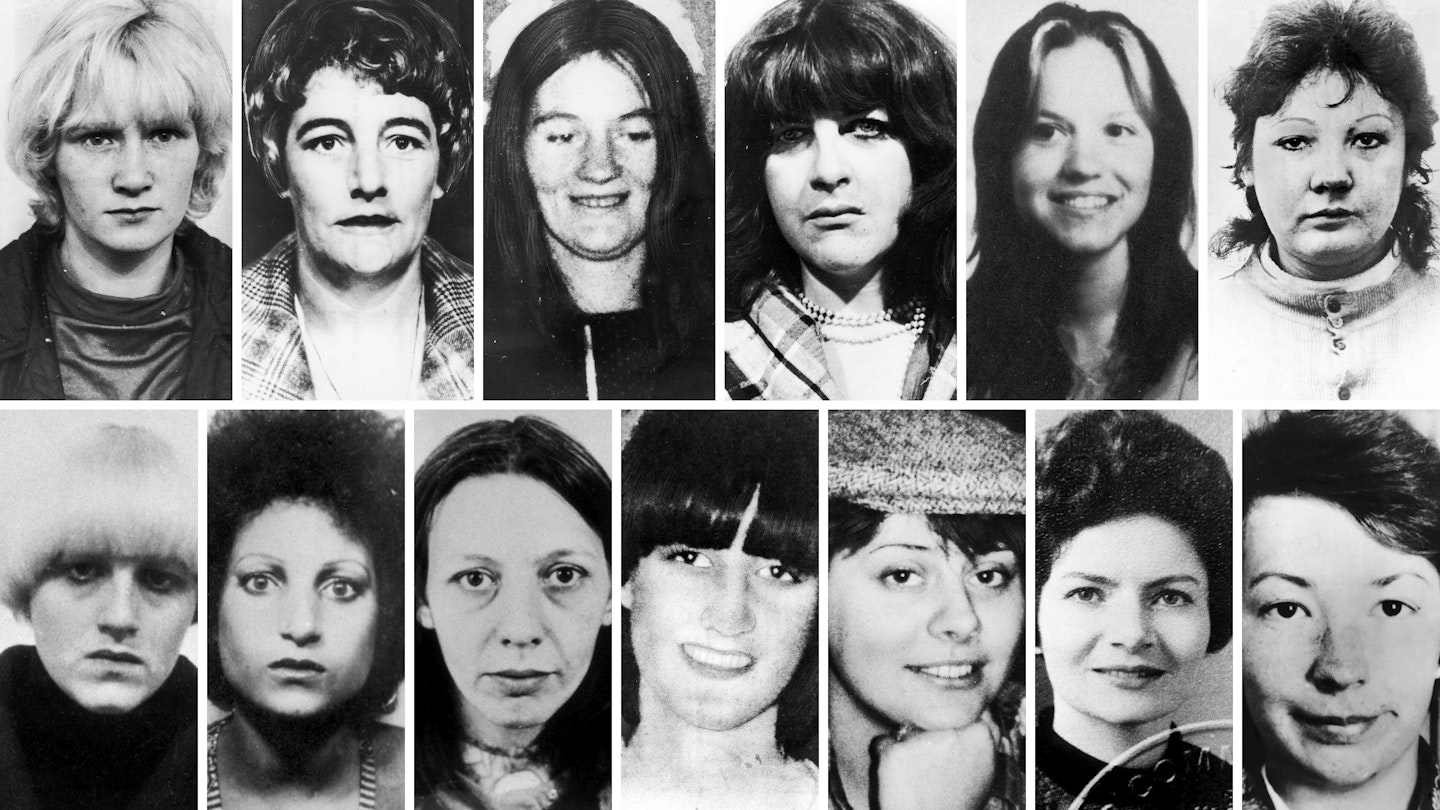Pictured above, Top L-R: Wilma McCann, Emily Jackson, Irene Richardson, Patricia Atkinson, Jayne McDonald, Jean Jordan; Bottom L-R: Yvonne Pearson, Helen Rytka, Vera Millward, Josephine Whitaker, Barbara Leach, Marguerite Walls, Jacqueline Hill.
40 years after he killed for the last time, Peter Sutcliffe has died in prison from coronavirus. The women above are his victims.
And so, while today, there will be many an overly-salacious article dedicated to the violence he used, how he killed and how chances were repeatedly missed to capture him, it's important to step away, and think about the women whose lives he ended.
The women who did not experience the last 40 years he continued to breathe, who did not die in hospital beds, but in fear, brutally.
Disgustingly, one of the top Google searches in the UK today is 'Peter Sutcliffe jokes'. Honestly, I should write something smart, but all I can think is what the fuck is wrong with people?
And so, a wave of social media posts are repeating the names of Peter Sutcliffe's victims, trying to balance the scales. Yet again.
His death and the media flurry around it comes just seven days after a BBC documentary about the 'trials' of murderer Oscar Pistorius' life. He killed his girlfriend Reeva Steenkamp. It's exhausting constantly having to forcefully insert these women's names into the public discourse.
When it comes to Peter Sutcliffe, it's important to remember he was convicted in 1980 of the murder of 13 women between 1975 and 1980 - and the attempted murder of seven others.
So today we must also think about those seven women, who were left living with what he'd done to them - and seeing the continual publication of books, TV shows, true crime docs and more about him.
Speaking on Sky News today, Marcella Claxton, who he attacked 44 years ago said: 'I have to live with my injuries, 54 stitches in my head, back and front, plus I lost a baby, I was four months pregnant.
'I still get headaches, dizzy spells and black outs.'
Police first of all didn't link Marcella's attack to the murders they were investigating. Amongst the mass of information out there today, focus in on the crumbs about the chances missed to catch Peter Sutcliffe. Not the famous hoxes, but the ones where women he'd attacked weren't listened to, where their stories weren't given the credit they deserved, missed tales of abuse that could've saved lives.
And for the families of the women Peter Sutcliffe murdered, there must be a million complicated emotions - including that of the renewed media spotlight.
Wilma McCann's son Richard appeared on BBC News this morning and said: 'The attention he's had over the years, the continuous news stories that we've suffered over the years, there is some form of conclusion to that.
'I am sure a lot of the families, surviving children of the victims may well be glad he has gone and they have a right to feel like that.'
But when it comes to the continuous news stories and a coming conclusion, I fear the peace and end to his name they must long for is yet to come.
One of the top Google searches in the UK today is 'Peter Sutcliffe jokes'
In fact, in October ITV announced they'd commissioned a 'true crime drama' The Yorkshire Ripper (working title) produced by the same people who'd made Des and White House Farm, about other notorious UK murder victims.
Honestly, I'd tried to get throughout this piece without using the moniker that made him famous - it's a title born out of the grotesque methods he used to kill and wound. We know his name now.
The press release says all the right things - that the victims, their families and the survivors will be placed 'at the heart of this story'.
Screenwriter George Kay says: 'In a story full with eye-watering statistics, one for me has always stood out: Peter Sutcliffe rendered 23 children motherless. That one fact in itself demands that any definitive drama about this case should encompass far more than just the story of a police investigation. We will focus not just on the police, therefore, but the victims, their families, those who were attacked but not believed, those who whose lives were permanently changed. This is not the story of a Ripper who hailed from Yorkshire, but the story of how Yorkshire was ripped apart.'
But come its airing, we know the circus that will surround it - just look at what people are googling today. I'm sick of moaning on social media and signing petitions about TV dramas that hinge on the brutal deaths of women now. Instead, I'll just vote with my remote when it comes this time.
Enough is enough. The way we talk about men who kill and the way we forget the names of those they killed has real life consequences for families of those murdered. But we also know from multiple studies now that those narratives also affect women currently in abusive situations and their decisions to speak out and escape. We must all make our own decisions - and stands - about the culture we consume. It is created on the viewing figures and Netflix algorithms we produce and so we can all do our bit to minimise the amplification of murderers names.
